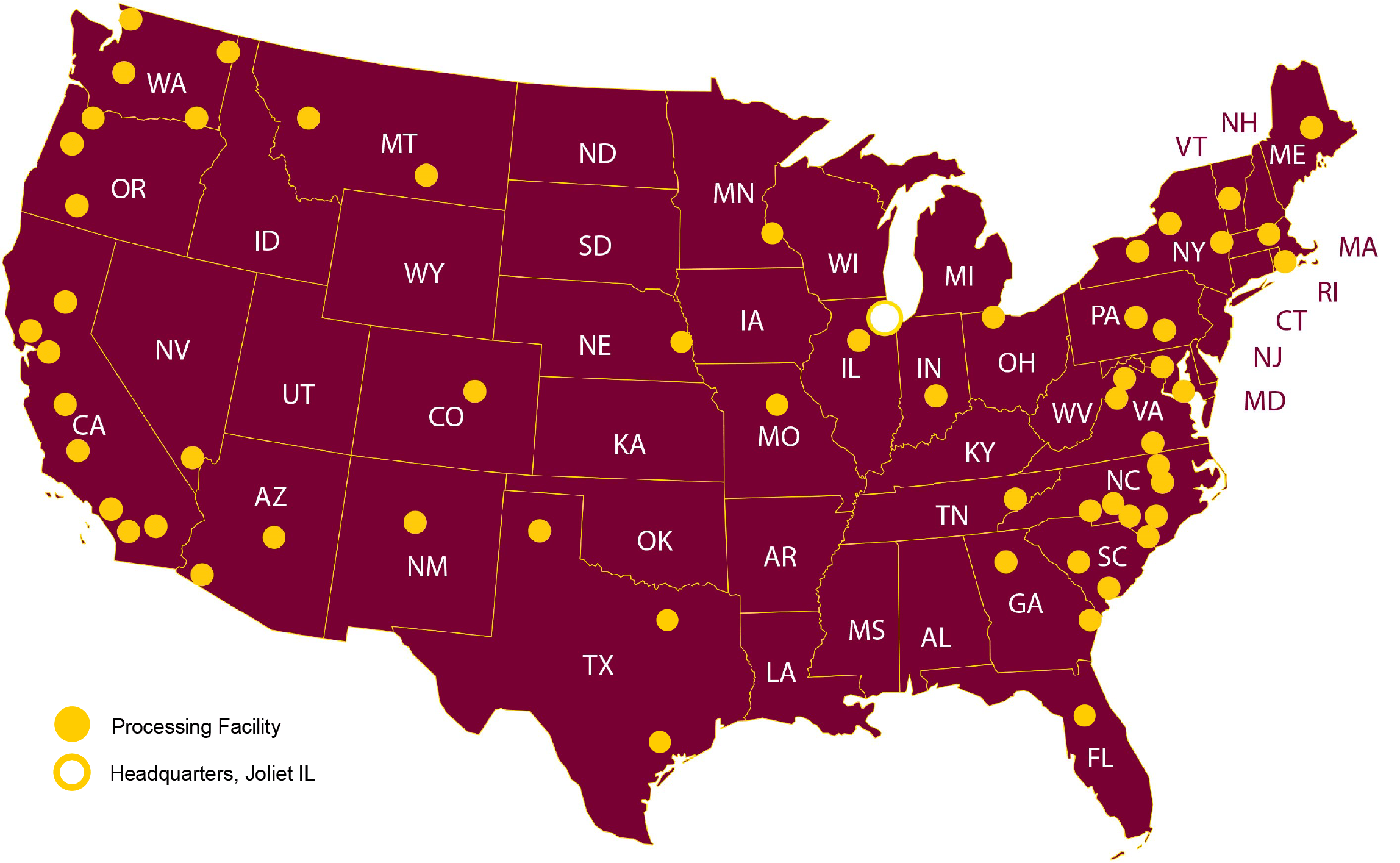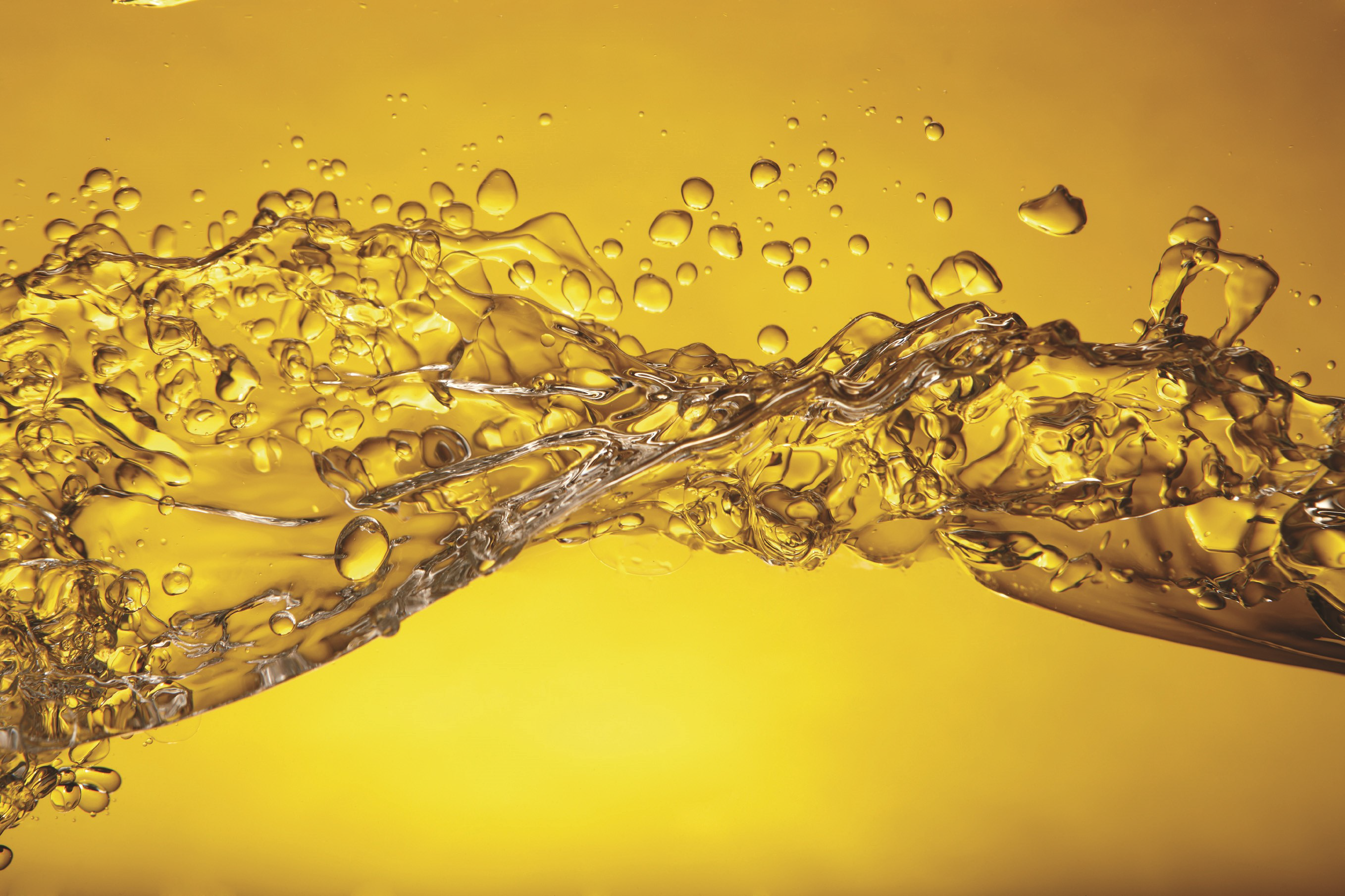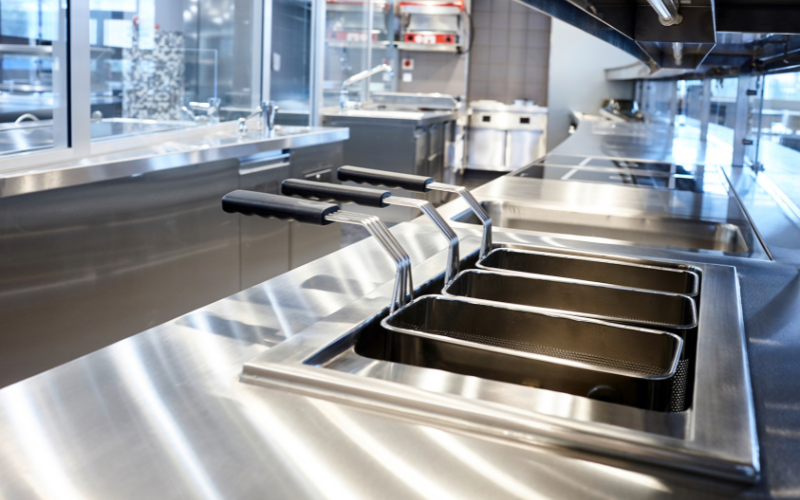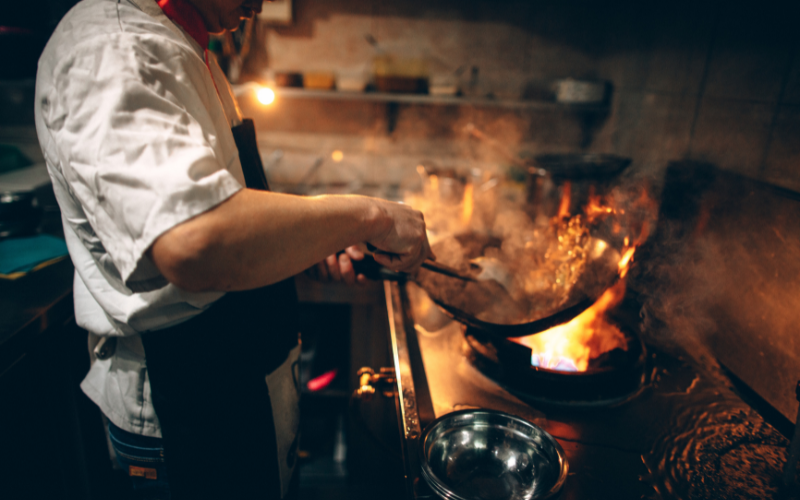In our last blog, we discussed the importance of the proper management of cooking oil within your establishment. You must make sure that your cooking oil is handled the right way from when fresh cooking oil arrives until it is deposited in your storage container to be collected for used cooking oil recycling. Proper management will prevent cooking oil spills that can lead to injuries as well as avoid actions that can diminish the quality of the cooking oil or shorten its useful life.
Part of proper handling also means protecting the cooking oil from contaminants that could degrade its quality. In this guide, we will discuss the main contaminants found in commercial kitchens that can decrease the purity and quality of your cooking oil. You can also help preserve the quality of your cooking oil by working with a professional like Mahoney Environmental that can provide regularly scheduled deliveries and used cooking oil pick-ups as well as equipment that will help you store, transfer, and dispose of your cooking oil.
Common Cooking Oil Contaminants
When cooking oil is exposed to certain foreign elements, it can degrade the cooking oil quickly by diminishing its purity and shortening its life. You must make sure that your cooking oil does not encounter any of the following contaminants that will decrease its value:
- Water: Water and oil do not mix and if water gets into your cooking oil, it can breakdown the oil. The steam that escapes during frying from excess water can cause foaming of the oil which will negatively impact the quality and flavor of the food. Make sure you protect your cooking oil from water and ice. This also means that you should thaw frozen food according to their proper thaw times to prevent excess water and ice from getting into the oil.
- Heat: Too much heat can burn and break down the cooking oil and shorten its useful life. When cooking oil is exposed to too much heat, it also tends to overcook food. Make sure the temperature of your fryers is lowered to 250 degrees Fahrenheit when not in use or turn off the vats.
- Air: The oxygen in the air forms hydroperoxides when cooking oil reacts to it through the process of oxidation. Heat and light accelerate the oxidation process and when the hydroperoxides decompose, this will lower the quality of the oil and affect the flavor of the food. The process of oxidation creates foul odors that not only affects the flavor of food, but also the nutritional value. Make sure you cover the fryers with a metal lid after each use to limit the oil’s exposure to oxygen.
- Soap: Soap can contaminate cooking oil and make the food unsafe for consumption. That is why it is generally recommended to clean your fryers with hot water only. If you clean your fryers with soap, they need to be rinsed thoroughly with a dilute vinegar solution that neutralizes soap residue.
- Light: Direct sunlight can cause fat molecules in cooking oil to break down which causes the oil to go rancid. Some cooking oils, like sesame oil, are more vulnerable to going rancid from light exposure due to their chemical structures. Make sure all cooking oil is stored in an area with no exposure to sunlight. If you use cooking oil that comes in a clear container, it is best stored in a cool, dark pantry.
- Salt: Salt mixed with cooking oil during frying speeds up oxidation that will darken the color of the oil and affect the flavor of the food. Salt can also release water into the oil which will break down the oil and cause foam formation. As an impurity, salt will lower the smoke point of oil, leading to the degradation and shortened life of the oil. You should never add salt to foods before putting them in the fryer, that should be done after frying.
- Carbon: When food particles break off and fall to the bottom of the fryer, they must be cleaned out or they can cause carbon buildup. Reusing the same cooking oil without removing the food particles can cause the oil to go rancid as it burns the carbon, and it can cause foaming of the oil. You can prevent carbon buildup by skimming the vats frequently to remove food particles or by filtering the cooking oil.
Used Cooking Oil Collection from Mahoney Environmental

Protecting your cooking oil from these contaminants is an important part of cooking oil management as you will maintain the purity and quality of your cooking oil and make better tasting food. The other thing you must understand is when to change cooking oil after use before it degrades in quality. Used cooking oil needs to be stored properly and collected by a professional for cooking oil recycling.
At Mahoney Environmental, we provide used cooking oil collection and recycling. We will come and empty your used cooking oil storage containers before they get full and take the oil where it can be properly recycled. We work with food establishments to set up regular used cooking oil pickups as well as fresh cooking oil deliveries to help manage cooking oil use and disposal.
You can call Mahoney Environmental at (800) 892-9392 to learn more about our cooking oil delivery and pickup services.



 Call Us Now (800) 892-9392
Call Us Now (800) 892-9392